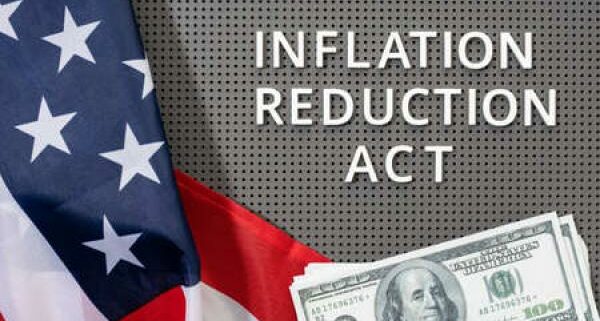What You Need to Know About the Inflation Reduction Act
Recently, President Joe Biden signed the Inflation Reduction Act (IRA) into law. People from all walks of life are likely wondering what the IRA will mean for them and those who make their living trading are likely no different.
The name suggests, the act is designed to reduce the sky-high inflation rates the country has been dealing with, but whether it will succeed in that endeavor is still a matter of some dispute. What’s clear is there’s far more to its aims than just inflation reduction.
The IRA also seeks to alter the tax code for the wealthy, add clean energy jobs, lower certain health care costs and revitalize American manufacturing. The bill is long and features many moving parts, so here’s how it will impact a few key areas that may affect you:
Taxes
One of the aims of the IRA was to make it harder for corporations to avoid paying taxes. To accomplish this, the IRA institutes a minimum corporate tax rate of 15%, puts a 1% surcharge on corporate stock buybacks and gives more than $100 billion to the IRS. Additionally, the act makes further investments into taxpayer service with the goal of helping taxpayers with questions they need answered and identifying credits and benefits they’re entitled to.
Tax Credits
Another key aspect of the act is tax credits for people and businesses that employ certain clean energy practices. You can obtain these credits by investing in energy efficient homes and commercial buildings or by providing electric vehicle charging infrastructure.
Additional tax credits are available for companies that use American-made equipment for clean energy production. The IRA will provide clean energy tax credits for wind, nuclear, solar, clean hydrogen, clean fuels and carbon capture.
Wages
One of the secondary aims of the IRA was to provide incentives for creating union jobs that pay a competitive rate, especially in the clean energy industry. Bonus tax credits are available for businesses that pay prevailing wages and hire registered apprentices. The act also penalizes companies that promise to pay prevailing wages, but ultimately don’t. Workers who are owed those prevailing wages will receive the difference and interest.
Manufacturing
The IRA is partially aimed at revitalizing American manufacturing by building up the clean energy sector. The act incentives domestic production in technologies such as solar, wind, carbon capture and clean hydrogen in an effort to build a clean energy supply chain.
The act is also aimed at promoting the creation of high-paying union jobs in traditional energy communities. The aforementioned tax credits will increase 10% if the clean energy project in question is established in a town that previously relied on coal, oil and natural gas extraction, processing, transport and storage for a significant source of employment. Tax credits are also increased if the amount of American steel used in wind projects meets the domestic content threshold. Bonus credits will apply to employers pay prevailing wages and hire certified apprentices. These measures are aimed at ensuring that federal tax policy supports the creation of high-paying, skilled jobs.
Health Care Costs
Another goal of the IRA was to lower the cost of prescription drugs. The act phases in a cap for out-of-pocket costs and establishes a $35 cap for a month’s supply of insulin for Medicare recipients. Additionally, Medicare will now be able to negotiate prices for high-cost drugs. The IRA also extends the provisions of the Affordable Care Act through 2025.
What Does it Mean for Traders?
Most of the provisions of the IRA don’t directly affect day traders. If you and your spouse combine to make more than $400,000 annually, you might see a tax increase. Aside from that, traders will be more focused on how this new law affects other segments of the economy as that will impact the market and, thus, trading.
If you’re a day trader who would like to hear more about the IRA from a professional, Traders Accounting is offering an hour-long consult on the matter for $200. Call us today at 800-938-9513 if you want to learn more!




Leave a Reply
Want to join the discussion?Feel free to contribute!